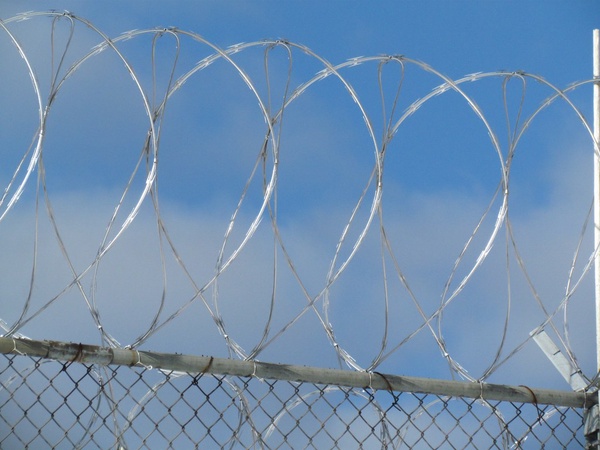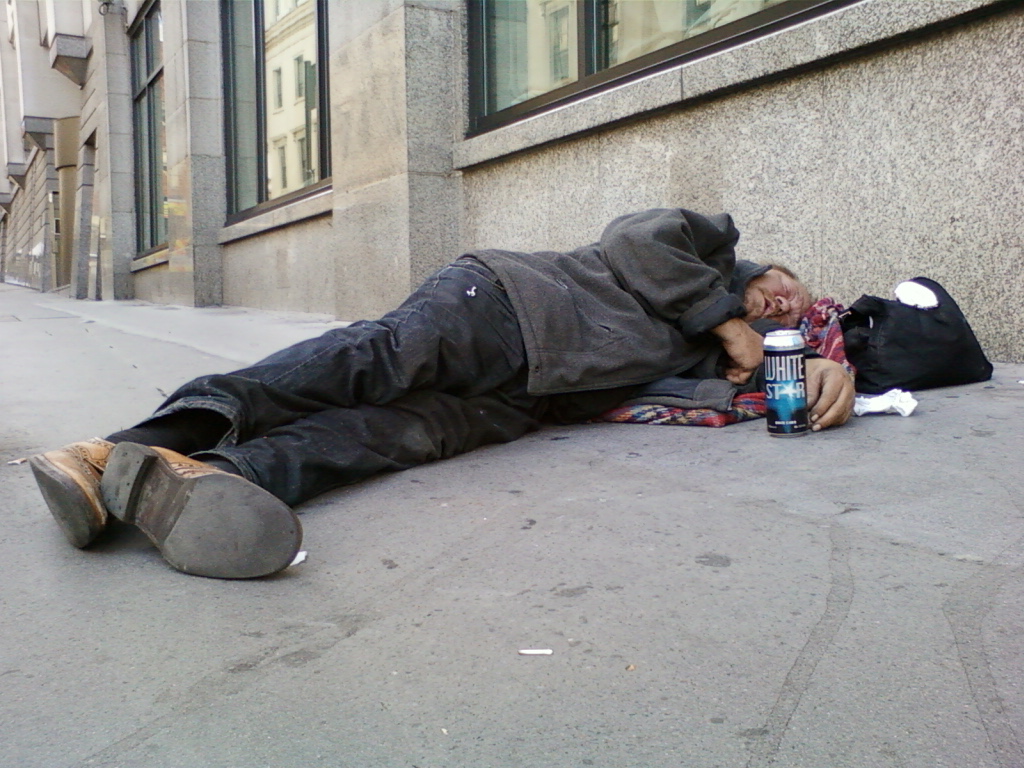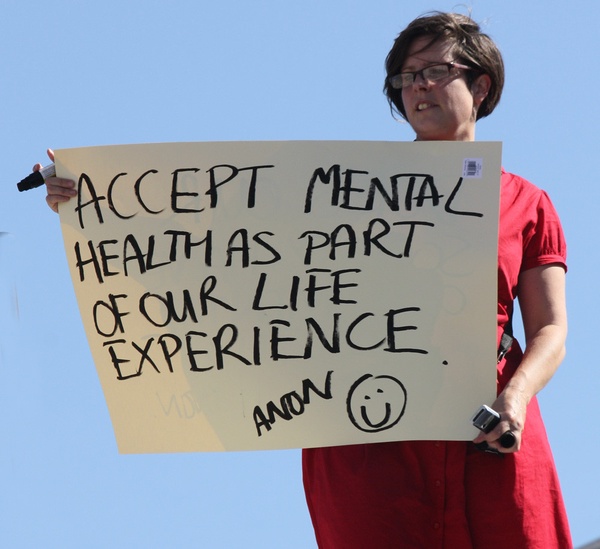
Photo by Eldridge Cleaver
Many cracks in the New Orleans infrastructure began to seep through after Katrina’s treacherous wake— especially their access to mental healthcare and its connection to the city’s incarceration of mentally ill individuals. The alarming quantity of imprisoned mentally ill individuals instill the notion that in order to get some kind of treated for a mental illness in New Orleans you need to be incarcerated. This only then perpetuates the cycle of violent crimes committed by the mentally ill, a lose-lose situation for all involved. With Louisiana being ranked 48th in the country for access to mental healthcare, clearly there is work to be done.
Access to mental health resources was always an at-risk system, and Katrina only magnified those issues. After such a horrifying natural disaster, people’s homes weren’t the only thing demolished— their mental stability was thrown through the ringer. Many suffered from PTSD, anxiety, depression and those with preexisting conditions were left with minimal care. Of the 196 psychiatrists in New Orleans pre-storm, only 22 remained by the Winter of 2005. Many severely sick individuals suffering from debilitating illnesses such as schizophrenia and bipolar disorder were left to deal on their own when they returned to New Orleans post-storm.
The failure of New Orleans mental health services is not only negatively impacting the mentally ill but causing the crime rates to skyrocket. Much of the alarming criminal activity is directly correlated to the shortage in mental health services, especially to the lower-class parts of the city. Orleans Parish Prison is currently the city’s No. 1 psychiatric facility, with 1 in 3 inmates taking psychotropic drugs and approximately 50% of inmates diagnosed with mental illnesses. New Orleans police have reported feeling like the “babysitters” of the mentally ill, continuously picking up the same individuals. The blame cannot be placed on these sick individuals as hospitals actively attempt to redirect police that bring in psychiatric patients. One reported example claimed that police were met by hospital staffers on the ER ramp hoping to turn away patients before they set foot inside the hospital’s grounds and become that hospital’s responsibility. The broken mental health system has led to these sick individuals ending up in a broken criminal justice system.

Photo by Deadly Sirius
Many mentally ill residents in New Orleans are in the lower income bracket, a large majority of them being homeless. With mental health treatment being incredibly costly, even for a middle-class family, it’s valid why many of these mentally ill residents are turning to crime. Not only are there economic barriers to access healthcare, but the lag in diagnosis and treatment will only worsen their condition. For example, a paranoid schizophrenic receiving no medications is a ticking time bomb in terms of violation of the law. Someone with this condition cannot distinguish between what is real and fake, none the less what is against the law. While the mental health sphere has the luxury of turning patients away, jails must accept whomever arrives on their doorstep. Prisons in New Orleans are treating their ill inmates as though they have a behavioral problem, or something that can be corrected away by doing time. The lack of empathy does not assist in reforming these individuals as they don’t need reformation, but true treatment and kindness in their various conditions.
Demonizing the mentally ill and painting the picture of them as these dangerous felons only perpetuates the cycle of crime. Not only is it harmful to those incarcerated, but many ill at home may come to see themselves as this self-fulfilling prophecy— specifically lower income residents. An estimated 2.5 million adults living below the poverty line have a serious mental illness, many without any intervention. It is a vicious cycle as poverty may intensify the experience of mental illness, increase the likelihood of the onset of mental illness and, at the same time, experiencing mental illness may also increase the chances of living below the poverty line. Many police are not trained to handle people in a behavioral crisis, which often leads to their lashing out against standard police procedures. Situations that were not criminal in nature therefore often lead to criminal charges. These individuals are barely given a chance, and the constant criminalization of these humans only continue to instill the notion in New Orleans residents that mental illness can and will become a crime.

Photo by Feggy Art
When the word “mental illness” comes to mind, many words associated with it are “weak, psychotic, demented” among many others. There are many major issues that surround mental health in New Orleans, lack of funding being the biggest, with stigmatization following closely behind. In order to right the
wrongs, not only in New Orleans but nationwide, it’s imperative to realize how important normalizing mental health is. When someone is diagnosed with a brain tumor versus bipolar disorder they are greeted with very different reactions. Both can cause erratic behavior, mood swings and personality changes, yet the mentally ill is continuously declined treatment. The first step in changing how New Orleans deals with mental health is by comprehending that mental illness is just as uncontrollable as a physical illness is.
The failure in New Orleans mental health system has caused quite a bit of trauma in many lives, but in order to move forward we must learn from these failures. Mental health needs to be decriminalized in the eyes of the public and police not only for the safety of those requiring treatment, but of those surrounding them as well. If these sick individuals can get intervention early in their diagnosis, this could prevent a number of unnecessary non-violent and violent crimes plaguing the city. The city prison should not be a mental health center and longer we allow it to thrive in that way, the more displaced ill individuals will be just be seen as another felon. The city must make the choice to invest in mental health or continue to pay for New Orleans’ neglect in years to come. By no means will this be easy, but this is a crisis that has been long overlooked needing a change.
 NOLAbeings
Multimedia artist Claire Bangser created NOLAbeings as a portrait-based story project that marries...
NOLAbeings
Multimedia artist Claire Bangser created NOLAbeings as a portrait-based story project that marries...
 Data corner: Adobe Suite (create a PDF, social media graphic, presentation, edit a photo and video
Data corner is where you go to work with analytics and top tech skills. It takes on everything from PERL and SQL to Canva and Sprout Social.
Data corner: Adobe Suite (create a PDF, social media graphic, presentation, edit a photo and video
Data corner is where you go to work with analytics and top tech skills. It takes on everything from PERL and SQL to Canva and Sprout Social.
